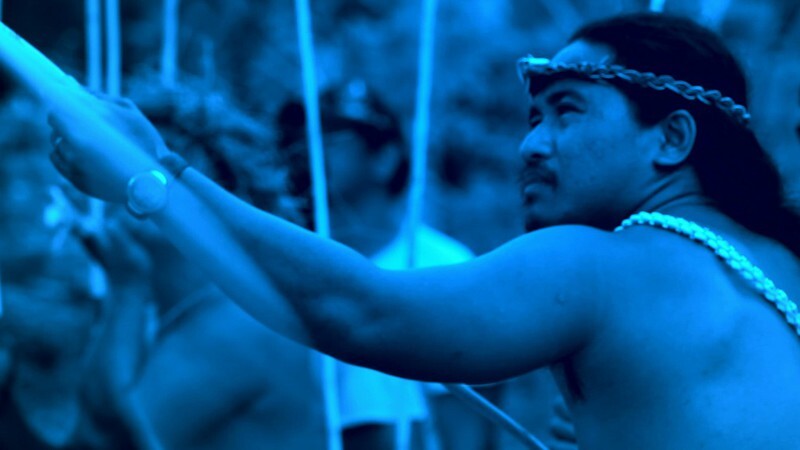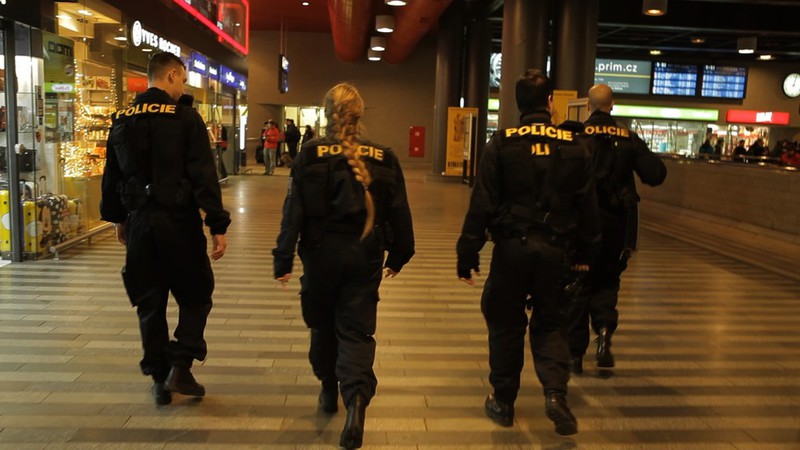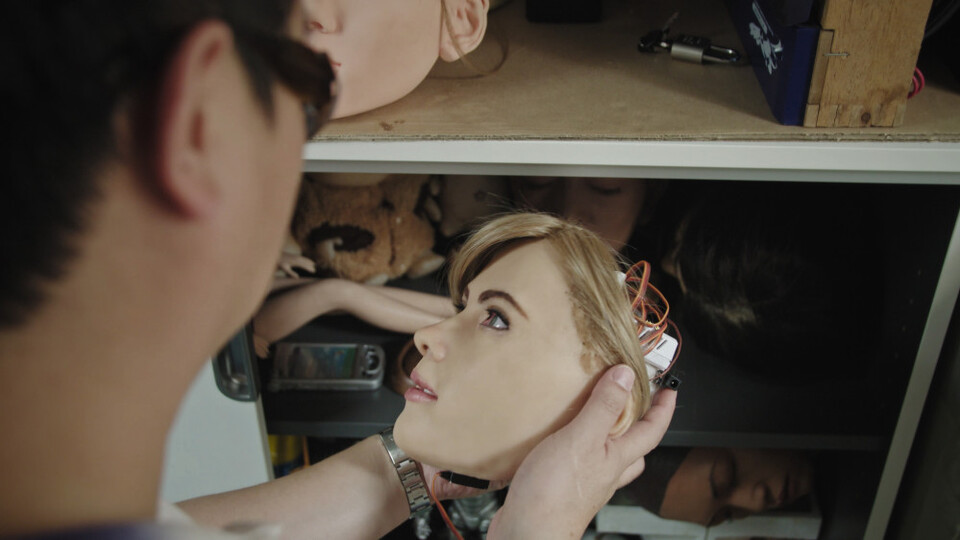Time, Law & Fascinations
Time Is Relative
Those who did not make it for the yesterday´s opening ceremony surely headed for one of the first late-night screenings of the festival. The program in Dukla cinema was launched by the short film Summer by Ronny Trocker. This movie reacts to the current migration crisis in Europe and was inspired by a photograph by Juan Medina from 2006, which shows a man just washed up from the sea and crawling on the beach of the Mediterranean Sea. The director developed a staged situation, which was loosely based on the moment captured in the photograph. The footage of this film is short. However, it is surprisingly striking and strong, in contrast to the second film 27 Times Time by the Belgian director Annick Ghijzelings. This one counts on a different type of storytelling.
The director took advantage of her visit to Polynesia to shoot an original meditation on the phenomenon of time. In 27 short fragments, she uses poetic commentaries to ponder over different forms of its representation. How do we perceive duration of time? What do our short lives mean in comparison to millions year long development of the Earth? Might we be going after something which is not, in fact, important at all? 27 Times Time forces audience to consider high demands the society makes on us and compels viewers to think about a possibility to follow Polynesians´ example and start living at a different pace. Slow shots of nature, peaceful scenes from local life and a comparison between a developed culture and an indigenous one result in a meditating film for a philosophically tempered viewer, which might seem a bit demanding to watch shortly before midnight. The reason is simple – the festival has thrown us right into rapids of a documentary river, uttering softly: swim.
Kateřina Šardická
Conference Fascinations, 2nd Edition
Conference Fascinations included an afternoon discussion panel dedicated to an organizational aspect of cooperation between authors, festivals, curators and distributors. Representatives of various organizations engaged in distribution of experimental films were discussing the issue in an hour´s block.
All participants concurred in the fact that a wide network of contacts represented a key aspect of a well working cooperation. Lauren Howes, the director of the Canadian Filmmakers Distribution Centre, believes that film festivals and presentations definitely serve as the most suitable platform for meetings of authors and distributors. Those are the events where they arrange most of their cooperation. Ingebjørg Aarhus Braseth, a representative of festival organizers, remarks that they often look for new contacts among students of film schools – they either contact debuting authors directly, or visit school festivals and presentations. All discussion participants support a thesis saying that the initial impulse of cooperation should emerge from authors themselves and that being aware of a particular institution portfolio is crucial. It is essential for the author to offer a kind of work which is suitable and corresponds to the offer of the institution. A well prepared author, whose expression shows knowledge of its work (festival program sections, recent exhibitions and installations organized by the institution), is definitely in a favourable position. The later cooperation develops individually, however, all institutions favour debuting and new authors, who promise a fresh spectacle, a chance of broadening their portfolios as well as contacts to other authors. The basic and generally effective rule – according to the discussion participants – is: do not be afraid to make contacts and to extend sphere of your connections.
Kateřina Šardická
Helena’s Law
Some (documentary) films bring up the question of a shifting boundary between creatorsʼ courage and pure madness. One such film is The Helena Law, in which Petra Nesvačilová focused on a famous case of a so-called Berdych´s gang. Her courage, however, does not end with her decision to dedicate the film to a controversial topic. For the purposes of her film she did not hesitate to take the risk and though admitting fear and being aware of the risk, she penetrated into the world of actual gangsters, the world into which most of us would never want to penetrate. Substantial space in the film is given to both the elite ex-detective, Helena Kahnová, and her then-partner Tomáš Gregor, but also to gangsters who used to be, or still are, members of the gangland, including David Berdych. Nesvačilová herself is performing in her film and she shares her feelings regarding the film shooting with the viewers. She becomes a notional communicative channel between the gangsters and the police and mediates the communication between them. The document is not only the portrait of Helena Kahnová, or an investigative searching for the truth, or pointing out the connections between the police and the organized crime. It also discloses the aspects of “work” on both sides: it reveals surprisingly ungrateful nature of police work and shows a certain intoxication that breaking the law can bring. Nesvačilová is constantly on thin ice and she does not hesitate to ask her protagonists some very direct and uncomfortable questions. At the same time she is able to establish a surprisingly informal dialogue. And thus, while the respondent describes his preparation for an armed robbery, he also admits that he often mops the floor at home. Nesvačilováʼs interviews with her respondents are fascinating and so is watching the shooting and listening to her authorial commentaries. The Helena Law is a result of great determination, strong will and infinite courage, which deservedly made it the opening film of the festival.
Veronika Jančová




